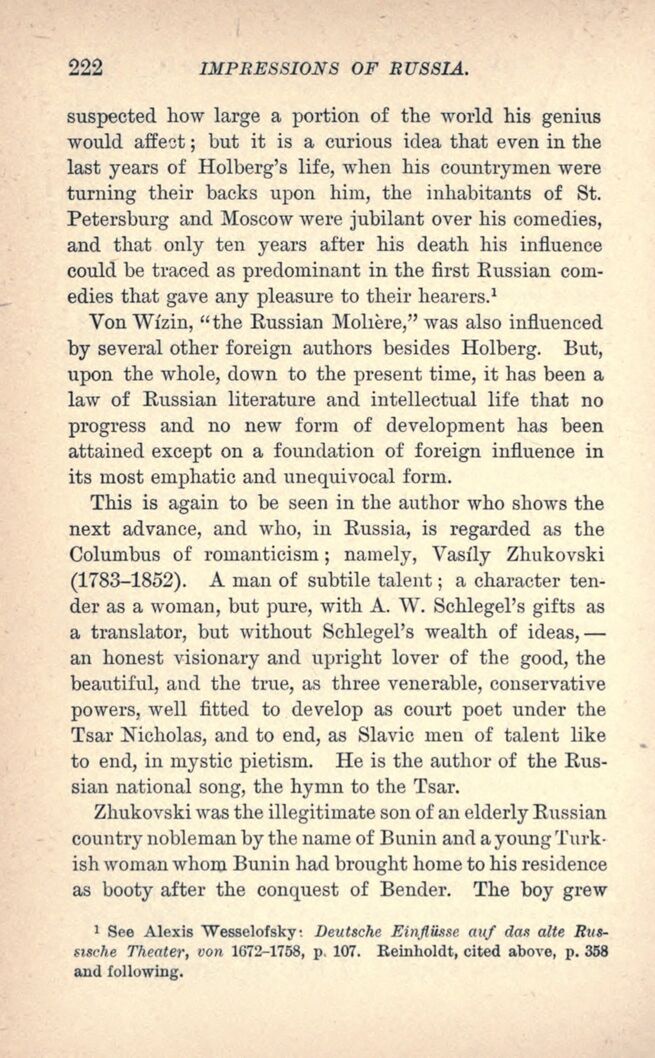
Full resolution (JPEG) - On this page / på denna sida - Impressions of Russian Literature - II

<< prev. page << föreg. sida << >> nästa sida >> next page >>
Below is the raw OCR text
from the above scanned image.
Do you see an error? Proofread the page now!
Här nedan syns maskintolkade texten från faksimilbilden ovan.
Ser du något fel? Korrekturläs sidan nu!
This page has been proofread at least once.
(diff)
(history)
Denna sida har korrekturlästs minst en gång.
(skillnad)
(historik)
suspected how large a portion of the world his genius
would affect; but it is a curious idea that even in the
last years of Holberg’s life, when his countrymen were
turning their backs upon him, the inhabitants of St.
Petersburg and Moscow were jubilant over his comedies,
and that only ten years after his death his influence
could be traced as predominant in the first Russian
comedies that gave any pleasure to their hearers.[1]
Von Wízin, “the Russian Moliere,” was also influenced
by several other foreign authors besides Holberg. But,
upon the whole, down to the present time, it has been a
law of Russian literature and intellectual life that no
progress and no new form of development has been
attained except on a foundation of foreign influence in
its most emphatic and unequivocal form.
This is again to be seen in the author who shows the
next advance, and who, in Russia, is regarded as the
Columbus of romanticism; namely, Vasíly Zhukovski
(1783-1852). A man of subtile talent; a character
tender as a woman, but pure, with A. W. Schlegel’s gifts as
a translator, but without Schlegel’s wealth of ideas, —
an honest visionary and upright lover of the good, the
beautiful, and the true, as three venerable, conservative
powers, well fitted to develop as court poet under the
Tsar Nicholas, and to end, as Slavic men of talent like
to end, in mystic pietism. He is the author of the
Russian national song, the hymn to the Tsar.
Zhukovski was the illegitimate son of an elderly Russian
country nobleman by the name of Bunin and a young
Turkish woman whom Bunin had brought home to his residence
as booty after the conquest of Bender. The boy grew
<< prev. page << föreg. sida << >> nästa sida >> next page >>